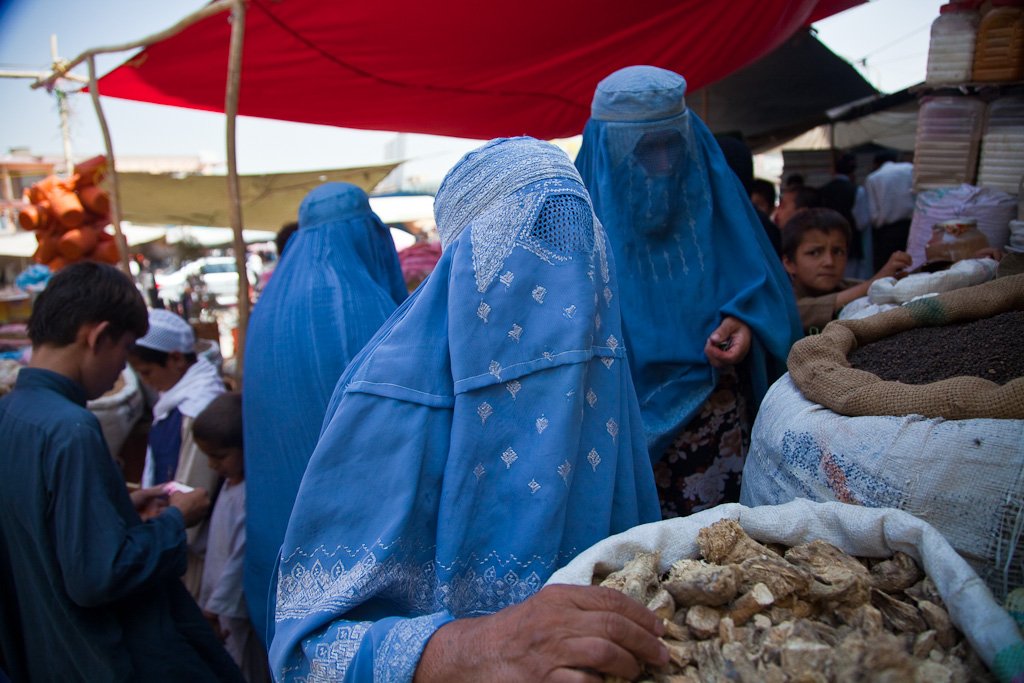Central Bank Immunity, Afghanistan, and Judgments Against the Taliban

Published by The Lawfare Institute
in Cooperation With

Editor's Note: this article also appears in the Transnational Litigation Blog.
Afghan central bank assets in the United States were frozen by President Biden following the Taliban’s takeover of the government in August 2021. As discussed on Lawfare and the Transnational Litigation Blog, half of those assets have been transferred to the “Afghan Fund” in Switzerland to be used for the benefit of the Afghan people as well as to keep them out of the control of the Taliban (which the United States does not recognize as the government of Afghanistan).
This article focuses on the other half—the approximately $3.5 billion in Da Afghanistan Bank (DAB) assets that U.S. victims of terrorist attacks seek to satisfy judgments that they hold, not against Afghanistan, but against the Taliban. The case is currently pending in the Southern District of New York. For reasons described in part by the U.S. government, Magistrate Judge Sarah Netburn, amici briefs, and myself, the statutory argument advanced by the judgment creditors is not convincing.
The relief sought by the judgment creditors would violate international law and harm U.S. foreign policy objectives related to the immunity of central bank assets. So far, these issues have been mentioned only in passing. They merit greater attention, and they provide powerful reasons to deny U.S. plaintiffs compensation from the assets of the Afghan central bank without clearer direction from the U.S. government.
Judgments Against the Taliban
Four sets of creditors are seeking to enforce judgments against the Taliban. Three hold judgments in cases arising out of the Sept. 11, 2001, attacks: Havlish et al. v. Bin Laden, Smith v. Islamic Emirate of Afghanistan, and the Federal Insurance Co. et. al. v. Al Qaida, et al. The fourth group, John Does 1 Through 7 v. Taliban et al., sued for injuries they sustained in a terrorist attack in Afghanistan in 2016.
Before turning to the enforcement actions and central bank immunity, it is worth considering the underlying judgments themselves. Those judgments are not against Afghanistan nor against its central bank. Instead, they are judgments against the Taliban as an entity distinct from Afghanistan. The underlying actions—all of them resulting in default judgments—were thus not brought against a government or one of its agencies or instrumentalities, and the courts that issued the judgments did not consider foreign sovereign immunity with respect to claims against the Taliban.
Separate Juridical Entities
The question of the foreign sovereign immunity to which specific defendants are entitled (for either the initial adjudication or the enforcement action) is a distinct legal question from the separate juridical status of each entity and whether a judgment against one can be enforced against the other. Both may be violated here. Both issues were raised by Iran in an ongoing case against the United States before the International Court of Justice (ICJ). The immunity issues were dismissed for lack of jurisdiction in February 2019—but the question of separate juridical status of the central bank remains (see Chapter IV). Although the two bodies of law are different, the possibility of circumventing the immunity to which a foreign state is entitled might be a reason to conclude that the debts of one entity cannot be enforced against another. That issue is not present in the case pending in the ICJ because both Iran and its central bank were entities presumptively entitled to immunity in those underlying cases. But it is present here. As a matter of equity, one might hesitate to enforce judgments against the Taliban by confiscating the assets of Afghanistan because the Taliban were not entitled to the immunity to which Afghanistan would have been entitled in the underlying litigation.
In any event, the enforcement of a judgment against Afghan central bank assets based on a judgment against the Taliban may violate international law respecting separate entities—a principle of international law that is also part of U.S. law, as the Supreme Court held in a case involving Cuban central bank assets.
Deficient Underlying Judgments
That the Taliban was not presumptively entitled to foreign sovereign immunity in the underlying actions had significant implications for the domestic litigation. Sovereign entities to which the Foreign Sovereign Immunities Act (FSIA) applies receive special protections from default judgments under 28 U.S.C. § 1608(e), in part because the FSIA confers subject matter jurisdiction on federal courts and those courts have an independent obligation to determine that an exception to immunity applies (see Restatement Fourth, Foreign Relations Law of the United States, § 463, cmt. a) before litigation goes forward or a default judgment is entered. In the cases against the Taliban, courts had no such obligations.
Consider the Doe case. Plaintiffs have filed for the turnover of $138,056,445.37 from Afghan central banks assets to compensate seven U.S. citizens who were allegedly harmed in an attack by the Taliban, al-Qaeda, and the Haqqani Network. According to the complaint in the underlying case, the seven Doe plaintiffs were private contractors, subcontracted by the U.S. State Department to provide security services for its personnel in Kabul, Afghanistan. A suicide bomber attacked the hotel at which they resided in January 2016. More than four years later, they sued in the U.S. District Court for the Northern District of Texas.
The entire case was filed and resolved quickly, with few docket entries. Plaintiffs served the defendants by publication in newspapers. They moved for entry by default with a two-page, five-paragraph motion, alleging only that the defendants had been served by publication and had not appeared. Personal jurisdiction was not addressed, and it is impossible to see how the standard “minimum contacts” test under the Fifth Amendment (assuming, as many courts have held, that it is the correct standard) would be satisfied. The motion for a default judgment and the accompanying memoranda appear (as best I can tell from the docket) to provide no evidence of liability—just uncontested affidavits about damages. Judgment was entered in the amount that the plaintiffs requested, including the $2,000,000 in pain and suffering alleged by each plaintiff. Each award of damages was then tripled. No case was or could have been brought by the Afghan victims of the same terrorist attack, as only U.S. plaintiffs can sue under 18 U.S.C.§ 2333.
Had the Doe case been brought against Afghanistan itself (or its central bank), sovereign immunity would have applied under both domestic and international law. The “territorial tort” exception, which might apply in the 9/11 cases because those attacks took place in the United States, would not apply to an attack in Afghanistan, nor would Afghanistan be denied immunity under U.S. law as a state sponsor of terrorism, because it has not been so designated by any administration.
The Doe judgment is a weak basis, as a matter of policy, on which to turn Afghan central bank assets over to private plaintiffs in the United States. The factual allegations have not been verified, there is apparently no personal jurisdiction, notice is questionable, and the entities being deprived of assets—Afghanistan and its central bank—would have been entirely immune from the underlying suit had they been sued directly. Further, the amount of damages is very large for each plaintiff—especially as those plaintiffs are U.S. citizens who presumably had health insurance and other benefits related to their work for the U.S. government. The money taken from Afghanistan to compensate them might be used instead to assist the 24 million Afghans with humanitarian needs, some of them grave. And, as discussed below, the enforcement of the judgments would also violate customary international law on immunity.
Enforcement of Judgments and Central Bank Immunity
Central bank assets are entitled to special protections from the enforcement or execution of judgments under customary international law governing immunity. By granting the relief sought in these cases and ordering Afghan central bank assets to be turned over to the judgment creditors, a court would put the United States in violation of customary international law.
As I’ve written in an analysis of state practice from countries around the world, foreign central banks are entitled to immunity from measures of execution under customary international law. There are no countries that dissent from that rule. Instead, the rule is acknowledged through legislation and court decisions by every single country that has engaged in relevant state practice, including China, Russia, the United Kingdom, Japan, Australia, Singapore, France, Pakistan, and Germany. Although certain limited kinds of assets held by central banks may not be entitled to immunity from execution under customary international law, the foreign currency reserves of the kind held by Afghanistan (and frozen by the United States) are entitled to absolute immunity. Freezing those assets does not implicate immunity, but a judicial order turning those assets over to the judgment creditors would.
Some violations of customary international law may be justified through the doctrine of countermeasures. But even putting aside problems specifically related to the denial of immunity as a countermeasure, the execution of judgments against Afghan central bank assets cannot be justified as countermeasures. The Draft Articles on Responsibility of States for Internationally Wrongful Acts, with commentaries, which probably reflect customary international law on countermeasures, provide in Article 49.1 that “an injured State may only take countermeasures against a State which is responsible for an internationally wrongful act in order to induce that State to comply with its obligations.” This language expresses the basic premise of countermeasures: The violation of international law by the country taking countermeasures (the injured state) is designed to induce the other state (which is responsible for an internationally wrongful act) to comply with its legal obligation. In this case, however, it is unclear that there is an ongoing “internationally wrongful act” by Afghanistan for which the United States is seeking compliance. Assuming that all of the acts of “terrorism” (which lacks a clear definition in international law) involved in the litigation qualify as “internationally wrongful acts,” and even if terrorism by the Taliban constituted a wrongful act by Afghanistan (despite the premise of the underlying litigation that the two are distinct and despite the U.S. failure to recognize the Taliban as the government of Afghanistan), and even if the unlawful conduct was ongoing (perhaps through the obligation to provide reparations), the United States has failed to follow the important procedural requirements for the use of countermeasures. Those requirements include, under Article 52 of the draft articles, notification and calling upon the target state to fulfill its obligations. Those requirements are especially important in a situation like this one in which the underlying judgments are imposed by private parties, against a private party, for many different wrongful acts. For “inducement” to work, the country that committed the wrongful act must understand what the state taking countermeasures is actually asking of it—that information does not emerge clearly from private litigation itself.
Finally, turnover of Afghan central bank assets to the judgment creditors would depart from standard U.S. foreign policy, which generally favors a high level of immunity and protection of central bank assets in the United States. With respect to the potential use of Russian central bank assets to compensate Ukraine for war damages, Treasury Secretary Janet Yellen described such measures as “not legal,” and treasury officials “expressed concerns about setting precedents and eroding other countries’ confidence in holding their central bank assets in the United States.”
Afghanistan Is Not Like Iran and Venezuela
The United States has imposed sanctions on Iranian and Venezuelan central bank assets. Those precedents, however, are different from the efforts to satisfy terrorism-related judgments against Afghan central bank assets. With respect to Venezuela, the United States certified interim Venezuelan President Juan Guaido to control Venezuelan central bank assets, although Nicolas Maduro was (and is) still in control of the government. The United Kingdom has done the same. These actions are similar to the establishment of the Afghan Fund and the designation of people unaffiliated with the Taliban to control the disposition of the assets. Although these actions may implicate the international law governing recognition and potential legal duties owed to unrecognized states, they do not immediately implicate the law of immunity.
With respect to Iran, however, U.S. courts have approved the turnover of Iranian central bank assets to compensate the victims of terrorist attacks that have been attributed to Iran. Those actions were widely understood as violating the immunity from execution to which Iranian central banks are entitled under international law. For example, the Coordinating Bureau of the Non-Aligned Movement, which represents around 120 countries, condemned these measures as violations of the international governing sovereign immunity.
One significant difference between the Afghan and Iranian cases is the clarity with which the political branches have spoken. In the case of Iran, courts refused to execute against Iranian central bank assets because Congress had not legislated clearly enough. Again and again, Congress legislated with greater and greater specificity including the identification of particular assets that should be turned over in particular cases. As the Supreme Court reasoned in Rubin v. Islamic Republic of Iran, “[w]here the FSIA goes so far as to divest a foreign state or property of immunity in relation to terrorism-related judgments, however, it does so expressly.” As I’ve described previously, Congress has done nothing of the sort in this case.
U.S. Foreign Policy
Finally, turnover of Afghan central bank assets to the judgment creditors would depart from standard U.S. foreign policy, which generally favors a high level of immunity and protection of central bank assets in the United States. With respect to the potential use of Russian central bank assets to compensate Ukraine for war damages, Treasury Secretary Janet Yellen described such measures as “not legal,” and treasury officials “expressed concerns about setting precedents and eroding other countries’ confidence in holding their central bank assets in the United States.”
Federal appeals courts, including the Second Circuit, have interpreted the statutory immunity protections for central bank assets with reference to “New York’s role as a financial center” and with concern that “weakening the immunity from suit or attachment traditionally enjoyed by the instrumentalities of foreign states could lead foreign central banks, in particular, to ‘withdraw their reserves from the United States.’” To be sure, Afghanistan is not a powerful country, and the Taliban are reprehensible, but as the global reaction to measures against Iran demonstrates, global reaction to a turnover of Afghan central bank assets is likely to be mixed, at best. Many observers note that the global economic and financial systems are becoming regional and divided. Confiscating Afghan central bank assets is likely to further those developments.
Congress may choose to legislate in ways that are contrary to U.S. foreign policy and that violate customary international law. Courts are quite right, however, in requiring that Congress speak with clarity, so that courts are not the ones that decide to put the United States in violation of international law. Congress has not spoken with anything approaching the level of the clarity that courts typically demand when executing private judgments against foreign central bank assets. And if courts deny the creditors’ motions, the issue is simply returned to Congress for resolution. The U.S. victims of terrorism are popular with Congress, and the Taliban is not, so the plaintiffs are well situated to seek legislation. If Congress does want to deprive Afghans of their central bank assets located in New York in favor of U.S. plaintiffs, it knows how to craft legislation to do so.





